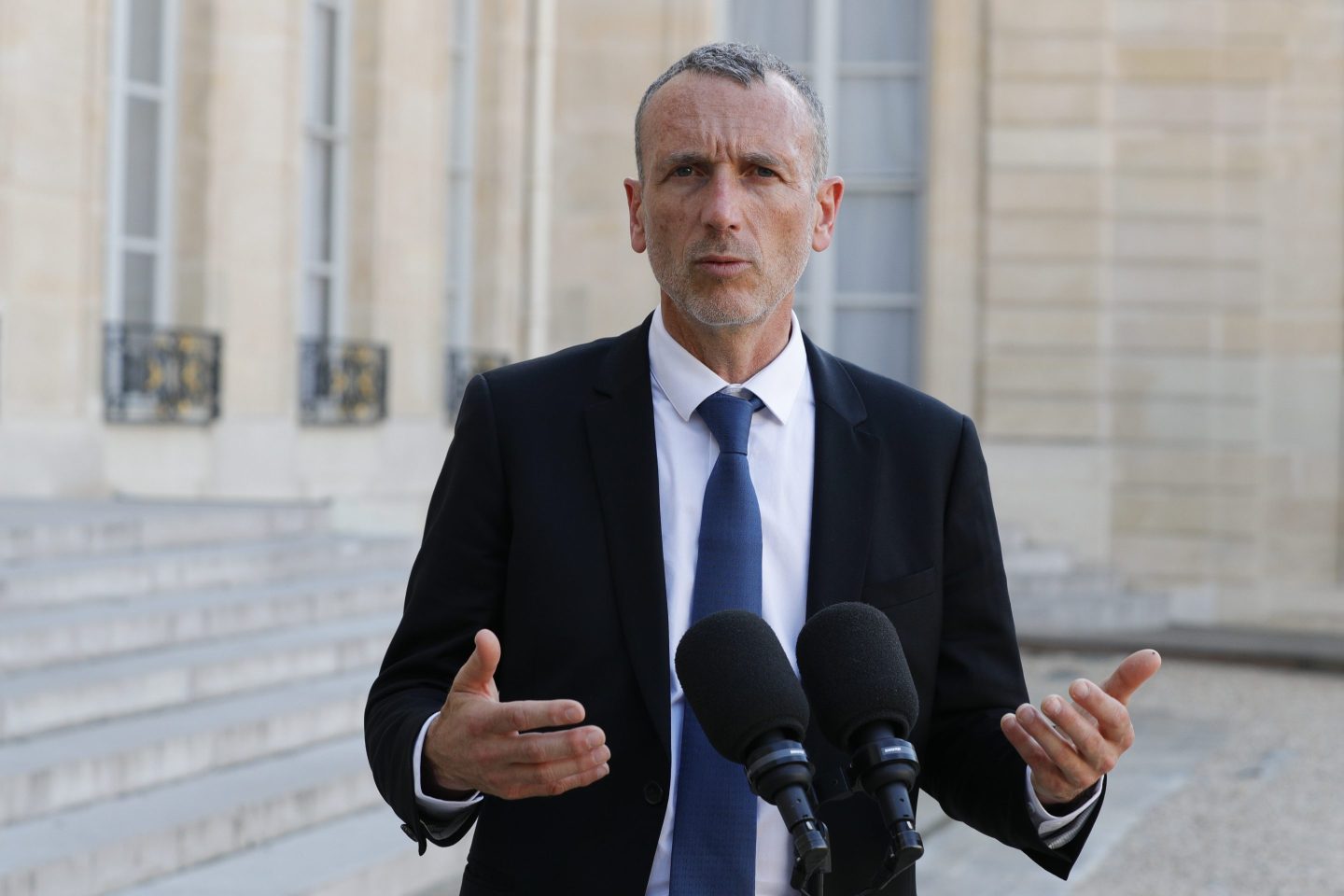French business executive Emmanuel Faber, known for his purpose-driven leadership approach, wants you to know his work isn’t based on values. Instead, Faber, current chair of the International Sustainability Standards Board, is about value, singular.
Specifically, the market value of climate risks and opportunities. And anyone serious about sustainability, he says, should focus on value too.
It was with a bang that the ISSB launched its long-awaited climate disclosures for companies this week. From a hotel in London, Faber, proudly presented new sustainability standards. And after much waiting and speculation, the so-called S1 and S2 sustainability standards are surprisingly simple.
In essence, they ask companies to:
- Disclose and assure their Scope 1, 2, and 3 CO2 emissions, targets, and progress
- Highlight what parts of their balance sheet are at risk due to the effects of climate change
- Put appropriate governance in place to oversee the process
This framework is simple yet powerful. Simple, because it comes down to measuring and disclosing CO2 emissions data and their relationship to the balance sheet. And powerful, because it speaks the language of accounting and investing, translating climate data into investor data.
“If today [a company] does a profit warning, tomorrow they will do a climate warning,” Faber told me on the phone from Paris. “It works in the same way because we’re talking provisions in the balance sheet. We’re not talking about an ESG green, red, yellow, or pink index.” Because of this approach, Faber said, the standards will create “market signals” and eventually have “systemic effects.”
That makes sense. Take the examples of California or the European Union, which have, for the most part, banned internal combustion engines for new cars by 2035. Having a car company simply indicate their emissions wouldn’t be very meaningful as such. But revealing what parts of their business are affected by these emissions will be a “game changer,” Faber said.
So the ISSB standards seem simple and effective. But will they become the de facto standard?
Faber is confident. It already has support from countries like the United Kingdom and Japan, green standard setters like CDP, and IOSCO, the organization that convenes all market regulators of the world.
But the real standard setters, of course, are the U.S. and the EU. And it is here that Faber’s value over values approach is poised to move the needle.
The EU’s proposed sustainability standards for companies include an expansive list of metrics. But unlike the ISSB’s, they cannot be directly translated into value at risk, making them less attractive. Many global businesses, including Bank of America and Salesforce, favor the ISSB approach.
In the U.S., progress on climate standards is largely stuck due to politics. Faber and the ISSB stay out of that hot water. “We’re not in politics,” Faber told me. “Our standards do not focus on values. I only focus on value.”
The values-agnostic approach seems like the right bet in America. I share Faber’s enthusiasm that his organization’s standards may well become de facto globally, especially where they overlap with the EU’s. ISSB standards implementation, which is just around the corner: in annual reports as of 2025, with some provisions for Scope 3, which will be fully included as of 2026.
If the ISSB standards indeed become part and parcel of global companies’ annual reports, it will be especially sweet for Faber. When he was ousted a few years ago as CEO of Danone after activist investors complained that the company was underperforming, his forced departure was also seen as a thumbs down for his focus on sustainability and the environment.
To succeed at ISSB, Faber reinvented himself. He had to drop any hint that his leadership on sustainability is driven by values. But he may well be proven right that it drives real value.
More news below.
Peter Vanham
Executive Editor, Fortune
peter.vanham@fortune.com
This edition of Impact Report was edited by Holly Ojalvo.
ALSO ON OUR RADAR
INBOX: The Vatican weighs in on A.I.
It’s not every day that you get an email with papal approval. So I’ll admit I was intrigued when Santa Clara University, a Jesuit university based in Silicon Valley, sent me a press release this week announcing its collaboration with the Vatican on A.I. The collaboration exists in the creation of an institute for “Technology, Ethics, and Culture” at the university and an ethical “handbook” for companies "to address the ethical complexities associated with disruptive technologies."
“It may come as a surprise to some to discover the Vatican’s engagement with this project,” Bishop Paul Tighe, the Vatican’s secretary for culture and education said, reading our thoughts. “It is...the result of encounters, to use one of Pope Francis’s favorite words, between the Vatican and the world of technology.” The Vatican’s A.I. handbook wants to promote an “inclusive conversation” between the tech sector and “the broader human community.” Count us in on the side of team humanity.
Norway invests in oil and gas to “provide the foundations” for the green transition (Reuters, AFP)
It could well be a story for The Onion. Norway, the world’s greenest country for cars, this week announced it will invest about $18.6 billion in new oil and gas projects. The country’s energy minister, Terje Aasland said the projects would “provide the foundations” needed to further develop the country’s wind power, hydrogen, and carbon capture and storage, per an AFP news report.
NGOs such as the World Wide Fund for Nature (WWF) and Greenpeace denounced the decision. The projects “reinforce the climate crisis and destroy our joint future,” a Greenpeace representative said. Our take: If you’re one of the world’s leading oil and gas producers, and the wealthiest per capita country in the world, own it. Don’t sell your fossil fuel investments as advancing the green transition.












